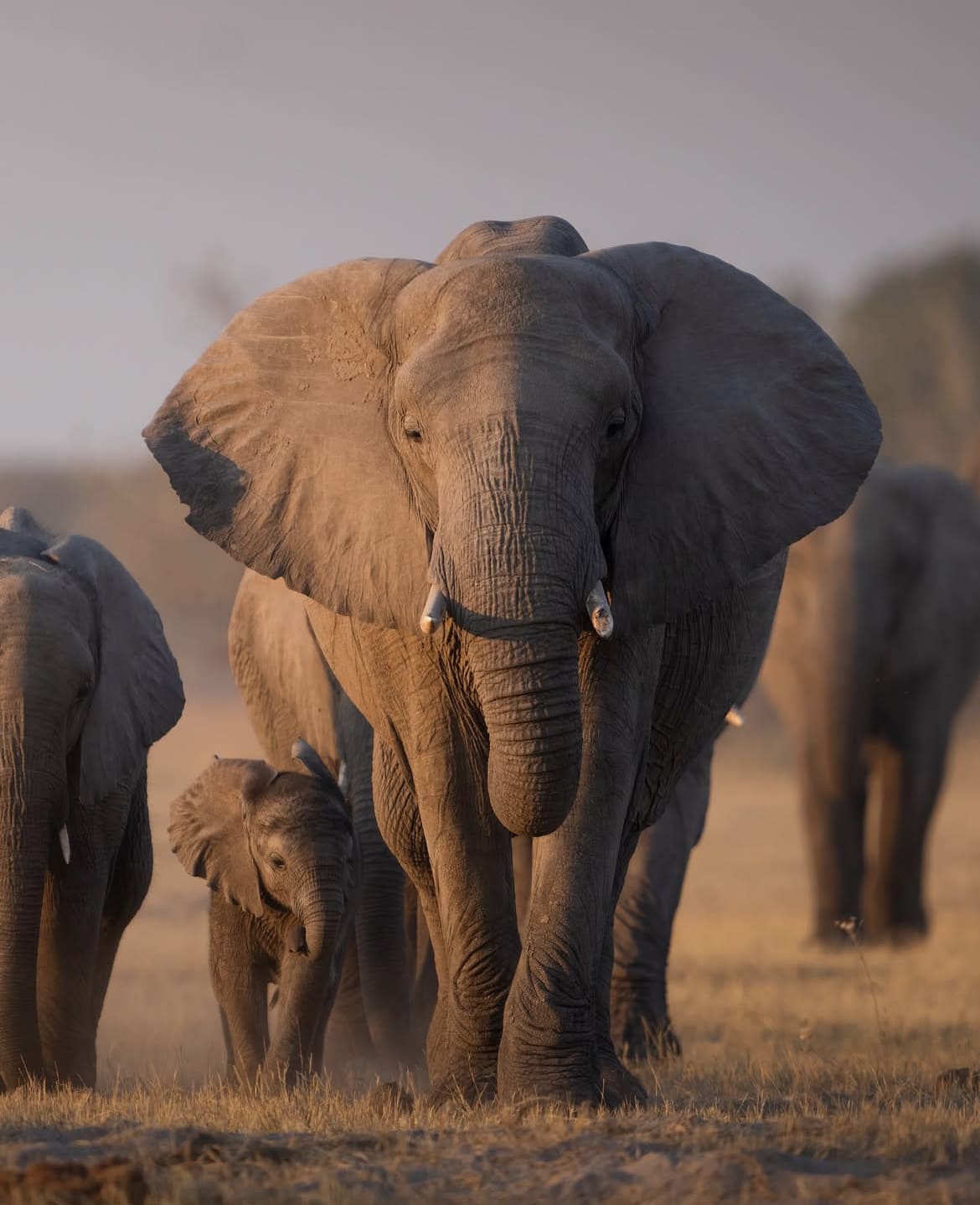Botswana, home to the largest population of elephants in the world, has made a controversial decision to issue 400 elephant hunting licenses for 2025.
This move has reignited debates on wildlife conservation, human-wildlife conflict, and the economic implications of trophy hunting in the region.
History of Conservation and Controversy
Botswana has long been a beacon of elephant conservation, boasting a population of over 130,000 elephants—the largest in Africa.
However, its conservation policies have shifted over the years. In 2014, the government imposed a hunting ban to curb declining wildlife populations and promote eco-tourism. Five years later, in 2019, the ban was lifted, with officials citing increased human-elephant conflicts and a need for alternative wildlife management strategies.
The reintroduction of hunting was met with mixed reactions. While some hailed it as a practical solution to growing human-elephant conflicts, others criticized it as a step backward in conservation efforts.

The 2025 Quota
The 400 licenses issued for 2025 reflect the government’s commitment to what it describes as “sustainable utilization of natural resources.” These licenses are distributed through a quota system, with allocations determined by factors such as elephant population density and conflict hotspots.
Most licenses are auctioned, with these expecting to fetch at least $50,000 each.
Government’s Defence of the Policy
The Botswana government has staunchly defended its hunting policy. Officials argue that the program addresses escalating human-elephant conflicts, particularly in rural communities where elephants destroy crops and infrastructure.
“We need to manage the population responsibly,” said Environment Minister Philda Kereng.
“Hunting provides a controlled and sustainable way to balance conservation and community needs.”
Economic benefits also play a significant role in the government’s justification. Proceeds from hunting licenses are channeled into community development projects and anti-poaching efforts, with officials emphasizing the importance of involving local communities in conservation.
Opposition and Criticism
Conservationists and animal rights groups have expressed strong opposition to the policy. Many argue that hunting is an outdated and ineffective tool for wildlife management.
“Killing elephants does not address the root causes of human-elephant conflict,” said Dr. Paula Kahumbu, a prominent conservationist. “There are more humane and sustainable alternatives, such as building better fences and creating wildlife corridors.”
Critics also question the sustainability of hunting, warning that it could negatively impact elephant populations and their role in maintaining ecosystems. Elephants are keystone species, crucial for shaping habitats that support other wildlife.

Economic Considerations
The financial implications of elephant hunting are a contentious issue. Hunting licenses can generate significant revenue for Botswana, with individual licenses fetching tens of thousands of dollars. However, the country’s thriving photo safari industry, which relies on the appeal of living elephants, contributes far more to the economy.
Tourism operators fear that the hunting policy could damage Botswana’s reputation as a premier eco-tourism destination. “Tourists come here to see elephants in the wild, not to hear about them being hunted,” said one lodge owner.
Environmental Concerns
Environmentalists warn that the long-term consequences of hunting could outweigh short-term economic gains. Elephants play a vital role in ecosystems, from dispersing seeds to creating water access points for other species. Overhunting could disrupt these processes and have cascading effects on biodiversity.
The government maintains that it monitors elephant populations closely to ensure sustainability. Officials insist that the annual hunting quota represents only a small fraction of the total population and does not pose a threat to the species.
Read More:
- Why Botswana and Namibia Want Fewer Elephants
- The Best Places to Go on Safari in Botswana
- Why African Elephants Are Becoming Hybrids
- The 7 Best Places To See Elephants In Africa
Global Reactions
The international response to Botswana’s decision has been mixed. Conservation organizations like the World Wildlife Fund (WWF) have criticized the move, while some hunting advocates argue that it aligns with sustainable use principles. Botswana’s international image, previously bolstered by its conservation successes, risks being tarnished by perceptions of prioritizing profit over preservation.
The Road Ahead
As the hunting program progresses, Botswana faces the challenge of balancing conservation, community welfare, and economic interests. The government has promised to monitor the program closely and make adjustments as needed. However, the ongoing debate highlights the complexities of wildlife management in a country where elephants are both a treasured asset and a source of conflict.
For now, Botswana’s decision underscores the difficult choices faced by nations with abundant wildlife. Whether this policy will achieve its intended goals remains to be seen. We’ll be watching closely.
